Personalised and tailored to you
Our support is personalised and tailored to your needs. You can contact us for free and impartial information and help. If you need ongoing support through Norfolk and Suffolk Victim Care, then we are able to assess your safety and security requirements through our comprehensive safety planning. We will:
- Allocate a local Case Manager to you, so there is no need to speak to someone different or to repeat your story.
- This case manager can assist through advocacy and signpost you to other agencies, if you need further support or guidance.
- We work with a network of agencies to ensure you get the support you need. Wherever we can, and with your consent, we will make the referrals for you to try and save you having to explain again.
- Our service is free and impartial, and all staff are Victim Support staff, independent from the Police:
- You can return for support at any time, as and when you need us.
- You don’t need to have reported the crime to the Police to access Norfolk and Suffolk Victim Care.
- The service is available over the phone, via Zoom or face to face. The choice will always be yours.
We support victims of all crimes in Norfolk and Suffolk. If you’ve been affected by a crime, please contact us for specialist individual support.
Norfolk and Suffolk Victim Care can support anyone in Norfolk and Suffolk who would like our support.
Hate Crime
Hate crime is defined as a crime against someone based on a part of their identity.
There are five categories of ‘identity’ when a person is targeted because of a hostility or prejudice towards their
- disability
- race or ethnicity
- religion or belief (which includes non-belief)
- sexual orientation
- transgender identity.
Experiencing hate crime can be a particularly frightening experience as you’ve been targeted because of who you are, or who or what your attacker thinks you are. Unlike non-identity related offences, the attack is very personal and specifically targeted, which means it’s less likely to be a random attack.
Every year, thousands of people in Britain are affected by hate crime. Nobody should have to live with the fear and anxiety this crime causes. It can also affect other people in your community, especially if they’re seen to be part of the same group in society.
Our expert Case Managers can talk about how Hate Crime is affecting you and what support we and other organisations can provide to help you. Call us now.
Stalking And Harassment
Stalking is fixated, obsessive, unwanted and repeated behaviour that makes you feel pestered and harassed. What makes stalking particularly hard to cope with is that it can go on for a long time, making you feel constantly anxious and afraid. Sometimes the problem can build up slowly and it can take a while for you to realise you’re caught up in an ongoing campaign of abuse.
If you’re experiencing persistent and unwanted attention, and the behaviour is making you feel fearful, harassed or anxious, then you are a victim of stalking. Contact Norfolk and Suffolk Victim Care and we will be able to able to offer you immediate safety advice and what next steps you can take.
Burglary
Burglary is when someone breaks into a building with the intention of stealing, hurting someone or committing unlawful damage. It’s one of the most common types of crime and often has far lasting effects for victims.
The impact of burglary isn’t always only financial. It can also have a significant impact on your emotional wellbeing and sense of security.
Even if nothing has been stolen, the thought of a stranger being in your home can be distressing and feel like a violation of your security. Some people blame themselves if they forgot to secure a window or door, or if they were tricked by the burglar, but it’s important to remember it’s not your fault.
Children in particular can be very frightened and may need reassurance, even if they don’t talk much about what’s happened.
Burglary isn’t always a one-off event. Some people may be burgled several times or can be affected by other crimes as well. Call and speak to one of our specialist case managers for practical advice around safety, home and personal security.
Rural Crime
Norfolk and Suffolk are both very rural counties. Rural crime isn’t recognised as a crime in its own right but can be very impactful on individuals and farming communities.
Examples of rural crime could include:
- Theft of vehicles such as tractors, quad bikes and other all-terrain vehicles (ATVs)
- Theft of livestock, or rustling
- Fuel theft
- Fly tipping
- Criminal damage
Our trained Case Managers can advise you on your rights as a victim and what how to report crimes and how to liaise with the local Police.
Robbery
A robbery is when someone takes something from you with violence or threats, usually (but not always) in the street or another public place. It’s classed as a violent crime and can sometimes happen in relation to other crime.
Most people experience a normal response of shock and fear after being robbed. You may have no reaction straight afterwards, but later on you might start to feel more distressed by the events. The repercussions of a crime like this can last a long time. You may be afraid of experiencing a robbery again, making you nervous about going out and being in public places or with people you don’t know.
Although it’s a relatively common crime, the impact it has on you as a victim can still be very damaging. Call us and we will try and help you with a dedicated Case Manager.
Anti Social Behaviour
Antisocial behaviour (ASB) affects many people and can have an impact on you, your home and your local community. If you’re experiencing antisocial behaviour you don’t have to cope on your own. We can help you plan your next steps and offer information and guidance with what your rights are and what actions you can take.
Types of Antisocial Behaviour could include-
- Noise disturbances
- Neighbour disputes
- Threatening behaviour
- Harassment and intimidation
- Vandalism
- Criminal damage
Antisocial behaviour can go on for extended periods of time and can become very serious. Not all antisocial behaviour is classed as crime, but a lot is or can become a crime.
We can help you even if the police are not involved, we can give you the information and support you need to change things and to make an informed decision.



